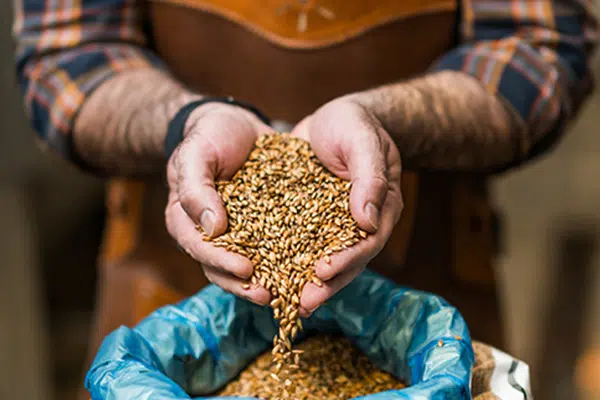We just recently did a webinar about an IRS term known as Constructive Receipt Doctrine and what it means to farmers in different examples. One of the examples was regarding a term I hear from my clients, “Hold Pay.” In a nutshell, they have instructed the purchaser of their grain to not pay them or cut a check until the following tax year. This can be disastrous upon audit and can be avoided easily.
Without going into IRS technical jargon, constructive receipt doctrine is the IRS saying to the farmer, if you have the right to receive income, we are going to treat it as if you actually received it. This prevents the taxpayer from deliberately delaying the receipt of income so he or she can control the year in which the income is reported. Farmers accomplishing this by doing “Hold Pay” leave themselves liable for possible tax liability, because most of the time they have met the requirements for constructive receipt doctrine, which includes the ability to draw upon the funds or could have drawn the funds if they were to let the purchaser of their grain know they wanted to be paid. Thus, upon audit, the farmer who carries $2,000,000 of carryover grain on “Hold Pay”, could have the entire amount reported in the previous tax year, causing huge tax liabilities, penalty and interest, that could result in a tax liability in excess of 50% of the amount of grain. For most of my clients, this would be disaster and a huge cash flow crunch on their business. So, how can we prevent this from happening?
I believe “Hold Pay” is confused with a legitimate tax deferral tool known as a Deferred Payment Contract. A Deferred Payment Contract needs to address the following issues to overcome the Constructive Receipt Doctrine and have income deferred into the following tax year:
- Must be a written contract binding on both buyer and seller.
- Must have a provision in the contract prohibiting payment before an agreed upon date.
- The contract must be executed before the farmer has the right to the money.
- The contract must specify it cannot be assigned or transferred.
- The contract must prohibit using it as collateral for a loan.
- The deferred payment agreement cannot provide for any interest.
- No amendments to the contract can be made after delivery of the grain.
There are other strategies to use with deferred payment contracts, such as breaking them up into smaller contracts to be able to bring income into the previous year, if necessary. Most of the time, you will need the assistance of a lawyer or someone who is familiar with these types of transactions. Please check out our webinar on this issue at our website myfarmcpa.com. We give some real-life examples and go into some greater detail.
Jeff Milligan, CPA
Managing Partner, Baker Milligan, Inc.




